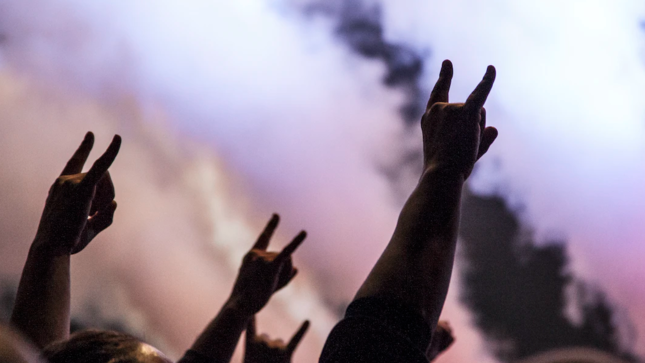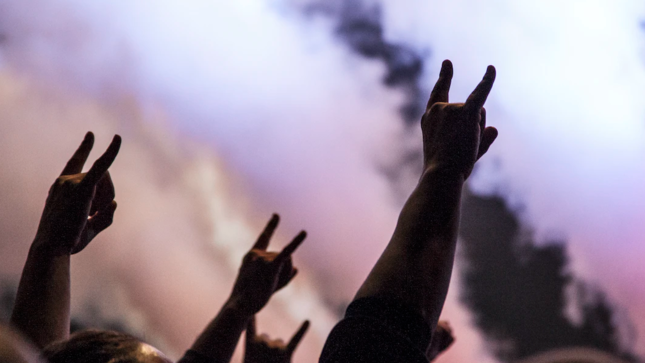
Forget the stereotype of raging against the machine – heavy music has long been a quiet force for mental wellness.
The world of rock and metal is proving that loud music can foster genuine connection and provide a powerful outlet for difficult emotions, according to recent studies.
Online communities like Heavy Metal Therapy and even festivals with dedicated mental health support are proving that music’s most extreme genre can help calm the mind rather than disturb it.
But how exactly do organizations like HMT work, and how exactly does heavy metal do this? Read on to find out more.
Music as therapy
Heavy metal is the basis of this increasingly popular therapy for several reasons, one of them being the community it builds.
“Metal has always had a sense of family,” says David Savage speaking to the Rolling Stone magazine. Savage runs Black City Records in Bristol and leads a local HMT group. “It’s about finding your tribe, those who understand the nuances of your pain, the weight of your anxieties.”
This sense of belonging is crucial. Studies have shown that listening to heavy music can actually reduce stress hormones because it makes you feel part of a special club, particularly for those who feel marginalized or misunderstood.
Lyrics like Metallica’s Fade to Black, which deals with the heavy theme of suicide, have provided a lifeline for countless fans, many of whom have described feeling a sense of catharsis and the knowledge that they are not alone.
Black Sabbath bassist Geezer Butler, in his autobiography, describes his struggles with depression and self-harm in the 1960s, saying how writing music became his therapy, a way to “dig myself out of a depressive hole.” His lyrics, particularly those on Paranoid, express the feeling of being misunderstood and the desperate need to be heard.
But it’s not just about the music itself. Bands like Metallica, Judas Priest, and Black Sabbath, despite facing criticism and even lawsuits in the past, have been open about their own mental health struggles.
This openness has paved the way for a new wave of artists and initiatives. Linkin Park frontman Chester Bennington’s tragic passing in 2017 spurred the creation of Uprawr, a mental health charity that provides free counseling to young people in the alternative music scene. This is open to anyone who struggles with any kind of mental-health-related issue, from alcoholism to problem gambling, and not just heavy metal fans.
Often, it’s just a simple conversation with a trained professional that can help someone in desperate need of guidance.
Finding connection in the crowd
The festival circuit is also stepping up. ArcTanGent, Glastonbury, and Download, among others, are major festivals that provide on-site support from organizations like Samaritans. There, festivalgoers can chat in-person with advisors who can help them identify ways of dealing with whatever their burden is. This might involve looking at popular methods like Cognitive Behavioral Therapy (CBT) or something as simple as deep breathing to anchor the mind into the present moment.
But the impact goes beyond professional support. Online communities like Placebo Anyway and the AF Gang, dedicated to fans of Placebo and IDLES respectively, have become vital support networks. These spaces allow fans to share their struggles, find solace in shared experiences, and build connections that go beyond the music itself.
“Placebo’s attention to mental health has always been powerful,” says Emanuela Panattoni from Placebo Anyway. “Everyone finds something of themselves in Brian’s lyrics, their inner struggles, the things they’re often required to repress.”
The power of heavy music in mental health seems to lie in its ability to create a connection, to provide a voice for the voiceless, and to remind us that we are not alone in our struggles.
The mosh pit might seem like a place for aggression, but it can also be a place for release and for finding your group. And that, perhaps, is the true power of heavy music: to heal through headbanging, to find comfort in the roar of the crowd, and to know that even in the darkest of times, there is always someone, somewhere, who understands.

